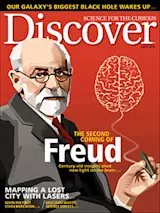Mind reading usually conjures images of scam artists with crystal balls, but a group of San Francisco neuroscientists and engineers is developing a device that can do it sans crystal ball. Their research aims to figure out what people with paralysis or brain injury are trying to say by studying how they attempt to move their mouths. By decoding patterns in the part of the brain that orchestrates the movement of the lips, tongue, jaw and larynx, the mechanical mind reader — a speech prosthetic — will give these people a voice through a computer-driven speech synthesizer.
In the short term, the device would help patients whose brains can’t drive the vocal machinery in their mouths. That includes the thousands of people with brain trauma, spinal cord injury, stroke or ALS who are fully conscious but unable to express their thoughts. (Most now rely on devices that require physical input.) ...















